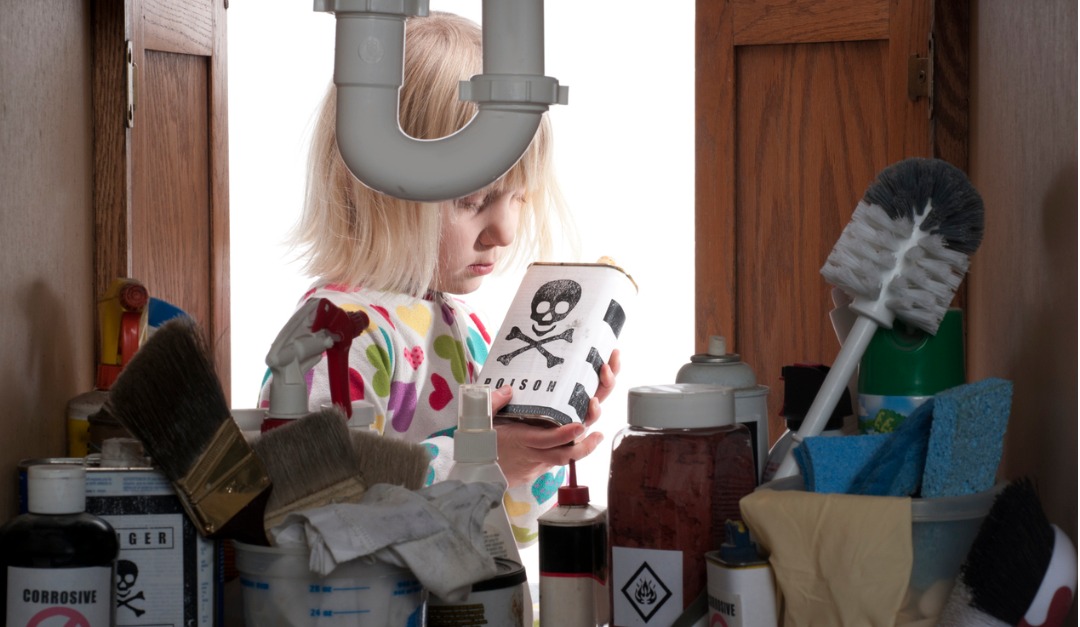
How to Prevent Accidental Poisonings
Household chemicals and medicines can be useful and beneficial, but they can also be extremely dangerous. Accidental poisonings are common, especially among children, who are curious and may not understand the dangers around them. It only takes a second for a child to ingest a toxic substance, which can cause irreparable harm or lead to death. Many poisonings can be prevented by taking precautions.
Use and Store Chemicals Safely
When you finish using chemicals, put them away immediately. Make sure lids are screwed on tight. Store containers in a cabinet that children can’t reach or that has a child-proof lock. If you store chemicals in the garage or in a shed, keep them locked up.
Keep household cleaners, pesticides and other chemicals in their original containers. If you pour a chemical into another container, someone else might not take the time to look at the label, and a child who can’t read won’t know what the substance is.
Don’t mix chemicals. Two substances that are safe on their own can become extremely dangerous when combined. Even if no one ingests the mixture, toxic gases can cause harm.
Avoid Medication Mistakes
Ask the pharmacy to supply medications in bottles with child-resistant caps. Read warning labels on prescriptions, especially if you’re taking a drug for the first time. Put medicine away after the person who needs it takes a dose.
Don’t share prescription medicines with others. Even if you have the same medical condition, the other person may require a different dose or may take another medication that could be dangerous when combined with your prescription.
Follow dosage instructions carefully for both prescription and over-the-counter medicines. Don’t take medicine at higher doses or take doses more frequently than recommended. That won’t make you get better faster, but it can make you sick.
Only give your kids medications designed for children. If you have questions, consult your pediatrician.
Kids often resist taking medicine, so many parents try to make it more appealing by calling it “candy.” The problem with that strategy is that a child may like the taste of the medicine and take more when you aren’t around, which can lead to an overdose. Explain in simple, age-appropriate terms that the medicine will make your child feel better, but don’t call it candy.
Get rid of any unused or expired medications. Contact the pharmacy to find out how to dispose of them. Your community may collect expired medications at designated times and places.
Know How to Prevent Poisonings and What to Do If One Occurs
Accidental poisonings can often be prevented by recognizing potential dangers and taking precautions. Be particularly careful if you have kids or if children come to visit. If you suspect that you or someone else has been poisoned, seek help immediately. If the person is unconscious and is not breathing, call 911. If the person is awake and alert, call the national Poison Help Line at 1-800-222-1222.
